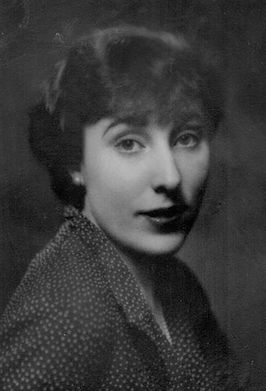Mary Manning (writer) facts for kids
Quick facts for kids
Mary Manning
|
|
|---|---|
 |
|
| Born | 30 June 1905 |
| Died | 25 June 1999 |
| Nationality | Irish |
| Other names | Mary Howe, Mary Adams |
| Occupation | writer |
Mary Manning Howe Adams (30 June 1905 – 25 June 1999) was an Irish novelist, playwright and film critic.
Biography
Born and raised in Dublin, Ireland, Mary Manning got her theatre training in Sara Allgood's teaching class in the Abbey Theatre. She had gone to school in Morehampton House and Alexandra College, Dublin. She also worked as a writer for the Gate Theatre. She adapted the short story Guests of the Nation for a film directed by Denis Johnston. Manning also helped found the Dublin Film Society in 1930. She worked as a film critic and co-founded the Gate Theatre arts magazine Motley in 1932.
In 1935 Manning moved to Boston where she married Harvard Law School professor Mark De Wolfe Howe. They had three daughters Fanny, Susan and Helen. When her husband died Manning returned to Dublin in 1967 and lived in Monkstown, County Dublin for another ten years. During this time Manning wrote for various publications such as Hibernia, The Irish Times and The Atlantic. She later returned to live in Cambridge, Massachusetts.
Manning was a founder of the Poets' Theatre in Cambridge, Massachusetts and worked as drama director at Radcliffe College during World War II.
After Manning returned to the US she married Faneuil Adams of Boston, Massachusetts in 1980
Mary's death occurred on 27 June in the year of 1999; at the age of 93 years old. Her death place was at the Mt Auburn hospital located in Cambridge, Massachusetts.
Ireland's two waves of silent film
From 1914 to 1926, Ireland experienced a surge of new film styles being produced, consisting of historical melodramas and romantic comedies. Following this, 1930 to 1935 birthed a second wave of industry produced silent films that were intended to be less cliche compared to the first wave. The films produced under the second wave were much more experimental and dealt less with the commercial appeals of the first wave. There's minimal information on how Manning specifically contributed to the second wave, however, it is stated that she played an important role producing five out of the six films to come out of that wave.
Prior to her career as a writer and filmmaker, Mary Manning worked as a film critic throughout the 1920s and 30s. She worked as a film critic for the Irish Statesman for a year during that time until it went out of business. She was known to disapprove of Hollywood's "unimaginable stories and its stereotypical portrayal of Ireland and the Irish".

